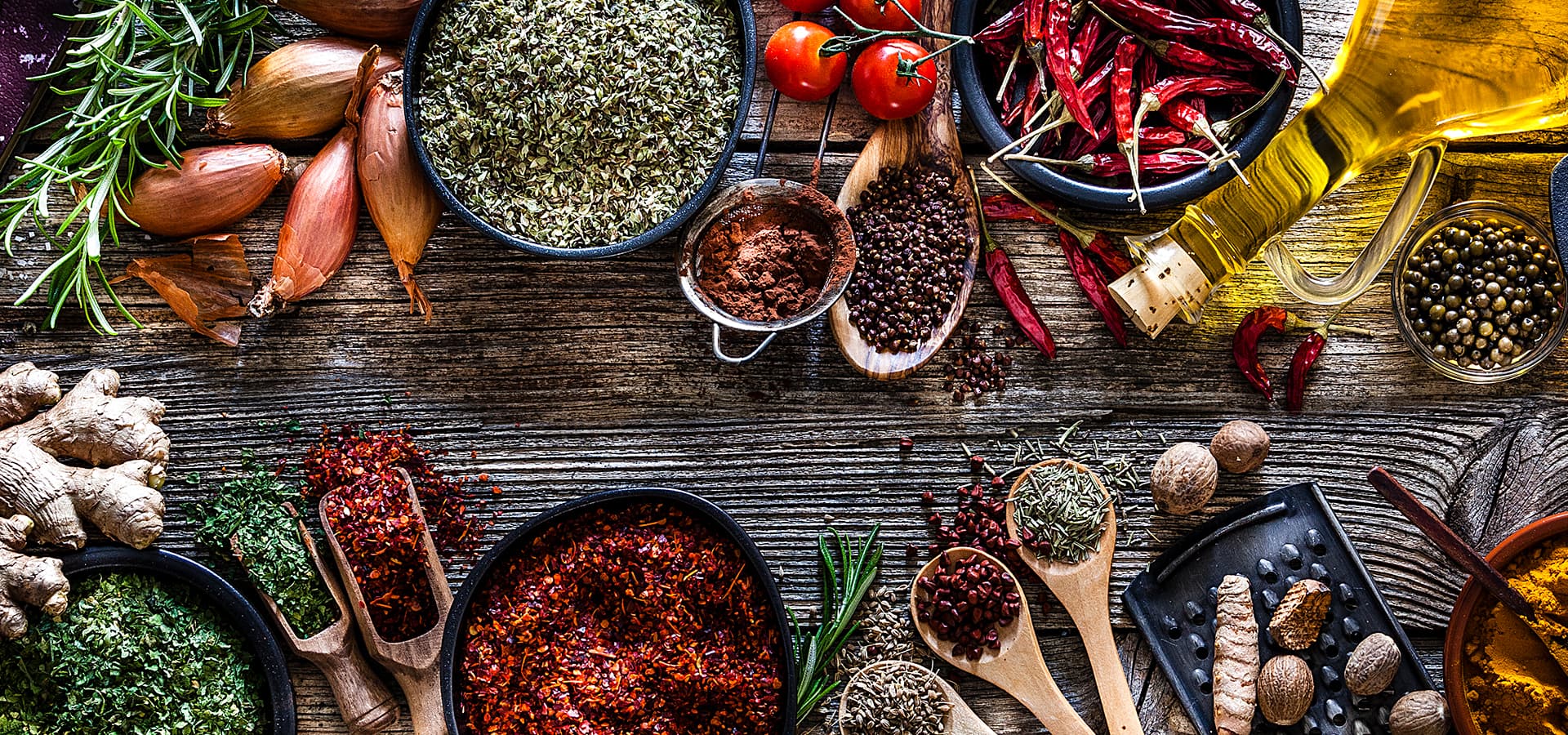
Spice Spice Baby Kanchan Koya on the Health and Wellness Benefits of Indian Flavors
There’s a reason she’s a star on Buzzfeed’s Tasty.
-
CategoryEat & Drink, People
 Kanchan Koya, founder of the blog Spice Spice Baby and a featured chef on Buzzfeed Tasty’s popular cooking videos, is a lifelong fan of Indian spices—and not just because they’re delicious. “Spices have amazing healing properties—not just for adults but for children as well,” shares Kanchan. The mom of two advocates using spices in baby food instead of serving infants traditional, bland-food diets.
Kanchan Koya, founder of the blog Spice Spice Baby and a featured chef on Buzzfeed Tasty’s popular cooking videos, is a lifelong fan of Indian spices—and not just because they’re delicious. “Spices have amazing healing properties—not just for adults but for children as well,” shares Kanchan. The mom of two advocates using spices in baby food instead of serving infants traditional, bland-food diets.
Here, in her own words, Kanchan shares the how-to on some of her favorite spices, elaborating on how they can be used for everything from fighting depression to alleviating indigestion.
Turmeric
Fresh turmeric has a peppery, vibrant flavor. Most turmeric, however, is consumed in dried, powdered form, which has warm, sweet, bitter notes.
Breakfast: Sprinkle on spiced scrambled eggs, overnight oats or chia pudding. Make a turmeric latte with ginger, cinnamon and cardamom.
Dinner: Use with chicken or fish curries, stews, soups, garlicky green beans, oven-roasted cauliflower, sautéed cabbage, okra, and lentils.
Snack: Put in warmed coconut oil, drizzled over popcorn.
Benefits: Turmeric is brain health boosting, gut healing; helps to fight inflammation, cancer, anxiety, depression, Alzheimer’s and Parkinson’s.
Note: Some turmeric may be laced with lead chromate to brighten the color, so buy from a reputable source.
Cumin
Peppery, warm, earthy and slightly funky.
Breakfast: Sprinkle on a sunny-side up egg, oven-roasted potatoes, carrots and peas, spinach and beets. Great as a base in lamb and chicken curries or grilled meats. Great in tagines, chili, lentil soups, rice and vegetable dishes (pulao), raitas (savory yogurt and veggie dips) and vegetable fritters (pakoras).
Benefits: Cumin is digestion boosting, immunity strengthening, antimicrobial, iron-rich, antioxidant, anti-cancer, anti-obesity.
Cardamom
Floral, peppery, citrusy, minty.
Breakfast: Grind some fresh cardamom seeds and sprinkle on oatmeal or infuse into pancakes. Great in mango smoothies, muffins, banana bread, spiced chai, matcha latte and coffee.
Dinner: Sprinkle on rice, quinoa and millet, on lamb and chicken stews, and rice pudding (kheer).
Dessert: Delicious in chocolate cookies.
Benefits: Cardamom is good for boosting digestion, fighting cancer, bacteria and nausea; cardio protective.
Coriander
Woodsy, peppery, citrusy, sweetish.
Dinner: Sautée with cabbage or cauliflower; sprinkle on eggplant, shrimp curry, roast chicken, lamb chops.
Benefits: Coriander is anti-diabetes, cholesterol-balancing, antioxidant, anti-inflammatory, antibacterial.
Cayenne (and other red chili peppers)
Spicy, sour, sweet.
Snack: Try it on mango with salt and lime; terrific on a mango salsa and in hot chocolate.
Dinner: Sprinkle on roasted corn, chicken tikka masala, Thai red curry, and tomato chutney.
Benefits: Cayenne helps fight inflammation, obesity, cancer; aids in digestion.
Saffron
Floral, sweet, luxurious.
Breakfast: Sprinkle on frittatas, pumpkin pancakes, mango muffins, chai.
Dinner: Paella, chicken or lamb biryani, kulfi, rice pudding.
Benefits: Saffron helps fight cancer, depression, anxiety, OCD and PMS and is also an antioxidant.
Fennel
Sweet, herbaceous, with licorice notes.
Snack: Slice some figs and serve with goat cheese and drizzled balsamic. Sprinkle fennel on the top.
Lunch/Dinner: Use in potato cakes, Greek salad, fried okra, in a spice rub on chicken or lamb.
Benefits: Fennel is gut-healing, anti-cancer, antibacterial, and an antidepressant.
For more on Kanchan and her pivot from Harvard-educated molecular biologist to food blogger, check out the SheSez with Linda Grasso podcast at shesez.com.











